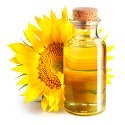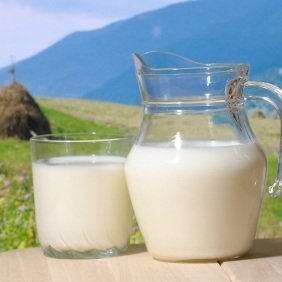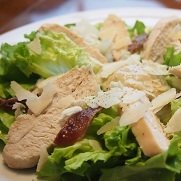Lose Weight
![]() Calories in Food
Calories in Food
![]() Calories in Dairy
Calories in Dairy
![]() Calories in Gouda Cheese
Calories in Gouda Cheese
Calories in Gouda Cheese,
Gouda Cheese Nutrition Facts
How many calories in Gouda cheese? See below, the Gouda cheese calories for the different serving sizes. We provide you with Gouda cheese nutrition facts and the health benefits of Gouda cheese to help you lose weight and eat a healthy diet.
Gouda is a semi-hard cheese, made from pasteurised cow’s milk and yellow in color. It originates from the Netherlands.
Gouda cheese is high in fat, approx. 27g per 100g. It is also high in sodium, so consider carefully before eating if you are on a weight loss diet.
It does though provide an excellent source of protein and calcium. In addition it contains vitamins A, B1-B3, B5, B6, B12, D, E, K, potassium, phosphorus, selenium and zinc.
As with all cheeses, it helps build healthy bones and teeth. Other Gouda benefits are believed to include increased protection against cancer, give the presence of vitamin K2.
Cheese in general contains conjugated linoleic acid (CLA). Studies of CLA have shown that it helps with weight loss.

Whilst we don’t generally recommend supplements as we believe all nutrients and vitamins should come from eating healthily, this is one supplement you may want to consider if you are giving up cheese as part of your weight loss program. Compare calories in Gouda cheese with the other calories in cheese and dairy products.
Calories in Gouda Cheese
Refuse: 0%| Serving Size | Calories per Serving |
| 100 grams | 356 kcal (1491 kJ) |
| 1 oz, 28.35 grams | 101 kcal (423 kJ) |
| 1 package (7 oz), 198 grams | 705 kcal (2952 kJ) |
Gouda Cheese Nutritional Information
| Nutritional value per 100 g (3.5 oz) | |
|---|---|
| Proximates: | |
| Water | 41.46 g |
| Energy | 1491 kJ (356 kcal) |
| Carbohydrates | 2.22 g |
| Sugars | 2.22 g |
| Fat | 27.44 g |
| Protein | 24.94 g |
| Minerals: | |
| Calcium, Ca | 700 mg (70 %) |
| Iron, Fe | 0.24 mg (1.3 %) |
| Magnesium, Mg | 29 mg (7 %) |
| Phosphorus, P | 546 mg (55 %) |
| Potassium, K | 121 mg (3 %) |
| Zinc, Zn | 3.90 mg (26 %) |
| Copper, Cu | 0.036 mg (2 %) |
| Manganese, Mn | 0.011 mg (0.5 %) |
| Selenium, Se | 14.5 mcg (21 %) |
| Vitamins: | |
| Thiamine (Vit. B1) | 0.030 mg (2 %) |
| Riboflavin (Vit. B2) | 0.334 mg (20 %) |
| Niacin (Vit. B3) | 0.063 mg (0.3 %) |
| Pantothenic acid (B5) | 0.34 mg (3 %) |
| Vitamin B6 | 0.080 mg (4 %) |
| Folate (Vit. B9) | 21 mcg (5 %) |
| Vitamin B12 | 1.54 mcg (26 %) |
| Vitamin A | 563 IU (11 %) |
| Vitamin E | 0.24 mg (1.2 %) |
| Vitamin D | 20 IU (5 %) |
| Vitamin K | 2.3 mcg (3 %) |
| Percentages are relative to US Recommended Daily Intake (RDI) for adults. | |
Author: Lana Soko
You Might Also Like:
Like This Page?
|
Share This Page:
|







